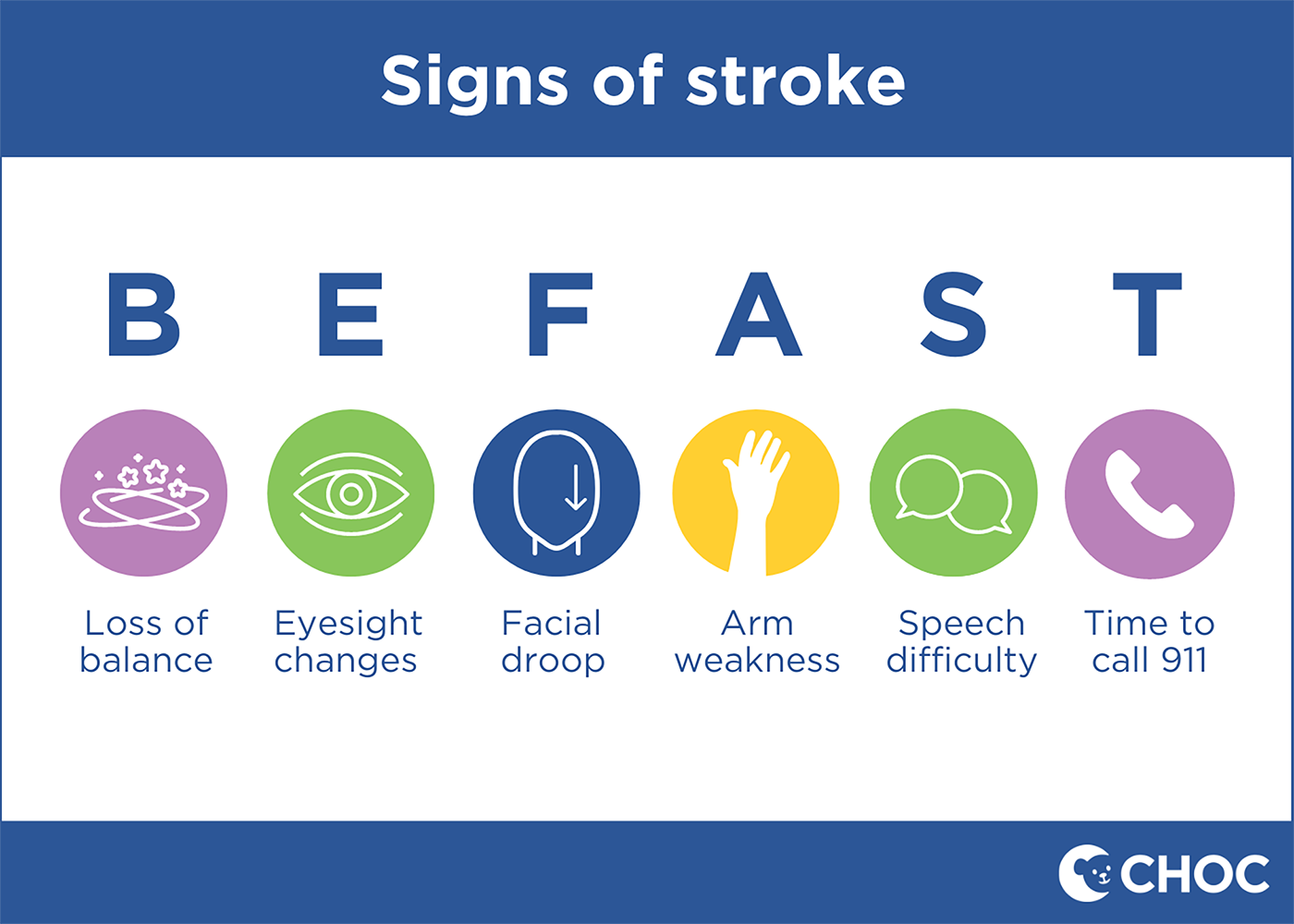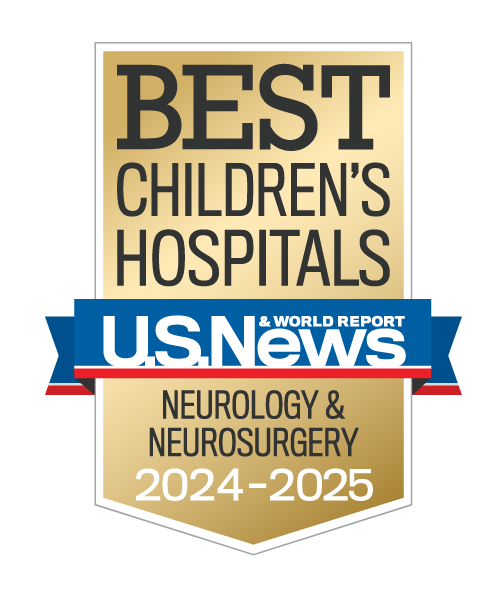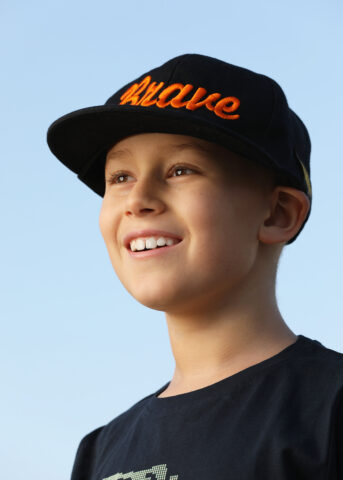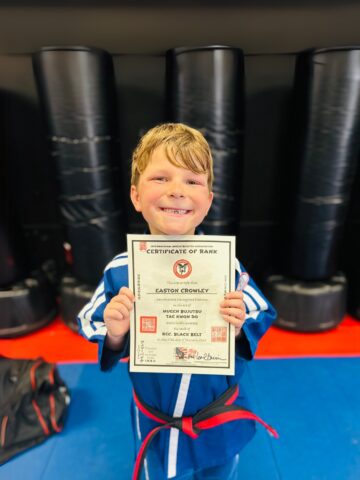May is National Stroke Awareness Month. Although strokes are much more common in adults than in children, 5 in every 100,000 children experience stroke every year. The risk of stroke is highest before the age of one and is one of the top 10 causes of death in children.
Diagnosis of stroke is often delayed or even missed in many children due to common conditions that mimic stroke and a lack of awareness that strokes may occur in children. Each minute a stroke is untreated, an average of 1.9 million brain cells die. Early interventions ensure the best outcomes for children. Fortunately, children can often recover more easily and completely from stroke than adults because their brains are still growing and developing.
To become familiar with the warning signs of stroke, Dr. Rachel Pearson, neurologist and medical director of the stroke program at CHOC’s Neuroscience Institute, suggests a commonly used mnemonic. It can help parents make swift, appropriate actions if their child exhibits signs of stroke.
Signs of stroke in children
Because strokes can cause millions of brain cells to die, time is of the essence when seeking treatment for your child. Using the acronym B.E. F.A.S.T. is an easy way to remember the signs of stroke. If you spot any of the signs, call 911 immediately.

 Print this chart
Print this chart
B- Loss of balance
Watch for your child’s sudden difficulty with walking, loss of balance or coordination.
E- Eyesight changes
Listen for complaints of vision loss or double vision. Your child may experience sudden changes in eyesight.
F- Facial droop
Look at your child’s smile. One side of your child’s face may be drooping, causing their smile to be uneven.
A – Arm weakness
If your child lifts both of their arms at the same time, one arm may drift downward. They may experience weakness or numbness in one arm or leg.
S – Speech difficulty
Listen for slurred speech or difficulty speaking. Your child may not be able to repeat a simple sentence correctly when asked.
T- Time to call 911
Time is of the essence. Call 911 or take your child to the nearest emergency department.
Learn more about strokes in children.
Get more expert health advice delivered to your inbox monthly by subscribing to the KidsHealth newsletter here.

Learn more about CHOC’s Neuroscience Institute
CHOC Hospital was named one of the nation’s best children’s hospitals by U.S. News & World Report in its 2024-25 Best Children’s Hospitals rankings and ranked in the neurology and neuroscience specialties.





